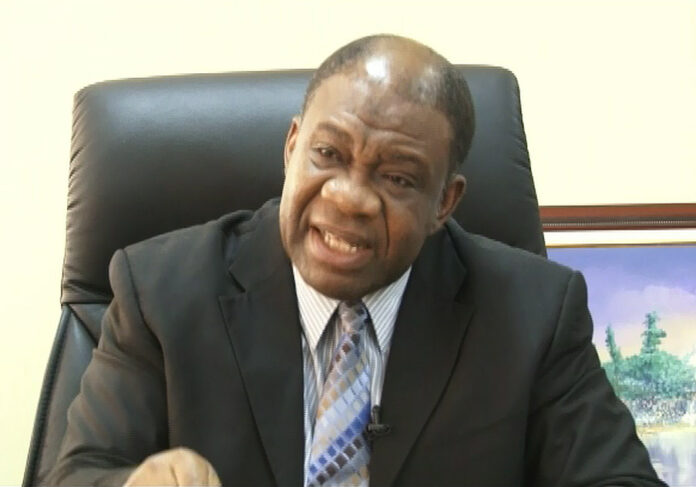Nigeria’s former Minister of Power, Prof. Chinedu Nebo, has recommended embedded power generation and distribution to help the country produce 20,000 megawatts and address its electricity challenges within a short period.
Nebo said in Abakaliki on the sidelines of ongoing first Biennial Engineering conference of Faculty of Engineering and Technology, Alex Ekwueme Federal University, Ebonyi.
According to him, generating power the regular manner will not improve electricity in the country and the average Nigerian cannot totally solve his power problems.
He said it would be difficult for Federal Government to generate funds required to build robust infrastructure that would make electricity accessible to all parts of the country.
He added that “from my experience in the power sector as a minister, I believe the nation can easily and quickly generate at least 20,000 megawatts if we take a different route.
“Casting the national grid in iron in Nigeria is perhaps the reason the nation has not achieved self-sufficiency in electricity generation.
“It is time to emphasise embedded generation and distributed power.
“With embedded generation and distribution, you don’t need to use the national grid, you can generate electricity where the people need electricity.
“You can use truck mounted generating plants that can produce 10, 30 or 50 megawatts and give the people power without having to go through the national grid,” Nebo said.
Nebo explained that government owned about 40 per cent of the power distribution companies, hence the need to still focus on the sector and not leave everything in private hands.
He also urged government to pay more attention to infrastructure, noting that obsolete transmission and distribution lines had been the cause of inability to distribute generated power in the country.
He said that remaining in the national grid should be made optional for states.
“States that have the desire and capacity to develop their own power sources as obtained in other federal systems, should be freed from the present constitutional arrangement.
“The present constitutional arrangement allows states to generate power, but cannot transmit and distribute for the reason that electricity transmission is still on the exclusive list of Federal Government,” he said.




